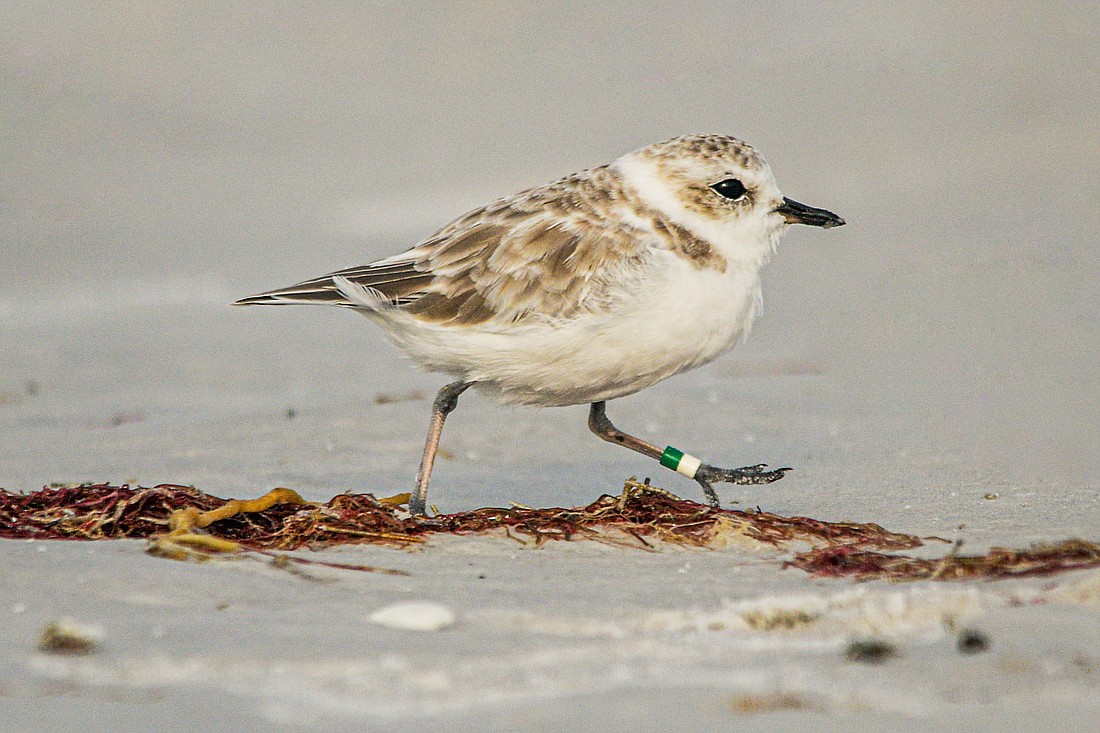- April 30, 2025
-
-
Loading

We named this snowy plover Ms. Sanibel, as she hatched on Sanibel Island. Which we knew, because she is uniquely banded. By identifying individual birds, banding allows us to gather information about their movement, breeding behavior and survival. This information is used to help protect our Florida state threatened birds.
Thanks to banding, we know that, for the past few years, Ms. Sanibel has called Siesta Beach home. And we followed her efforts to nest on a beach that has progressively become inhospitable to shore birds, due to increased disturbance from humans and predators (such as dogs and fish crows).
In 2019, in a nesting season fraught with challenges, and, ultimately, no successes, Ms. Sanibel was responsible for four of the six snowy plover nests on Siesta Beach, and for 10 of the 13 total eggs laid. This year, despite early season losses, Ms. Sanibel incubated a nest of three eggs for over two weeks. Sadly, the eggs were eaten by crows, likely because Ms. Sanibel was scared off her nest by a dog.
When shorebirds have multiple failed nesting seasons, they move on in search of safer grounds. Indeed, mid season, Ms. Sanibel flew north to Caladesi Island State Park, where, she and her mate successfully incubated, hatched and raised two chicks. And with her important job done, Ms. Sanibel recently returned to our beautiful Sarasota-area beaches.
Like many of us, she just can't stay away!
To create a more hospitable habitat for Ms. Sanibel and all our shorebirds in 2021, let's keep dogs off the beach, give birds space, remove trash and avoid feeding birds.
Save our Seabirds is a non-profit organization whose mission is to rescue and rehabilitate sick and injured birds, releasing as many as they can, while educating our community about preventing injuries and preserving habitats.